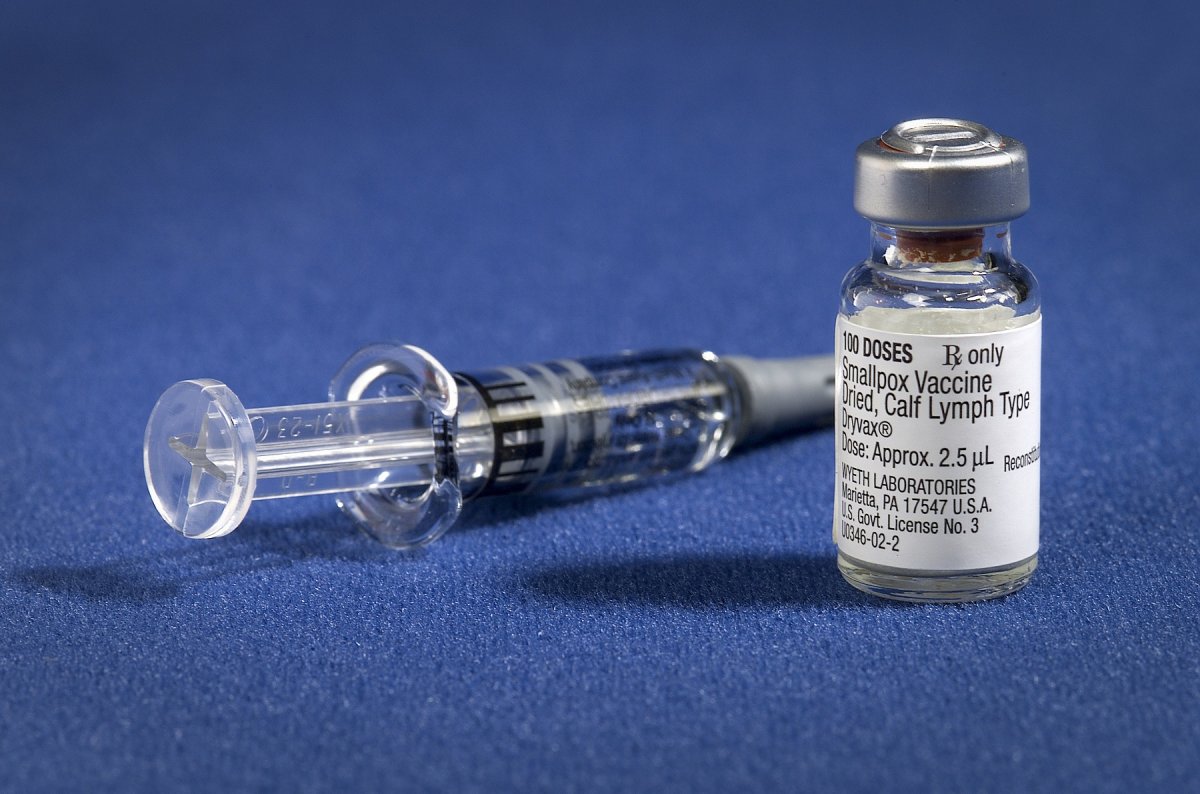A halt in routine smallpox vaccinations decades ago has contributed to the growth of monkeypox, experts have said.
Monkeypox cases are continuing to spread around Europe in an outbreak doctors have described as unusual, since it only very occasionally spreads outside of west and central Africa.
Yet increasing numbers of cases are emerging this month in countries like the U.K., where 20 cases have been reported, as well as in Spain, Italy, Germany, Belgium, France, the U.S., Canada and others.
According to the European Centre of Disease Prevention and Control (ECDC), this is the first time that chains of transmission have been reported in Europe without any known epidemiological links to west and central Africa.
Investigations are ongoing to examine the new cases and what is causing them. One factor is that people aren't protected against the virus, and haven't been since the global smallpox vaccine rollout was halted decades ago. The smallpox vaccine also protected against monkeypox.
Terrible Disease
A concentrated smallpox vaccine rollout occurred widely in the 1960s and '70s as part of a massive international effort to rid the world of the disease that had a fatality rate of around 30 percent in its most common form and was believed to have lingered on Earth for over 3,000 years.
In 1959, the World Health Organization (WHO) put a plan together to eradicate the disease entirely. Initially the program struggled due to a lack of funds and vaccine donations, and while the disease had already been eliminated in North America and Europe, it persisted in South America, Asia and Africa.
With the launch of a more intensified eradication effort in 1967, higher-quality freeze-dried vaccines were made available and mass campaigns were launched to get the shots into arms. The disease was declared completely eradicated in May 1980—an accomplishment considered to be one of, if not the biggest, achievements in international public health ever.
As smallpox became less and less of a threat, vaccine rollouts wound down. In the U.S., routine vaccination ended in 1972. Today, no government gives or recommends the vaccine routinely, according to the WHO, though it may still sometimes be given to people who work with the virus in labs.
Adults today who were vaccinated against the disease as children may still have some level of protection depending on how long ago they got it, but young people today will have no such protection.
"Smallpox immunity, either from vaccines or infection, does confer cross protection against monkeypox," Shabir Madhi, professor of vaccinology at the University of the Witwatersrand, South Africa, told Newsweek. "There might be a contributing role of increased susceptibility to monkeypox after having stopped smallpox vaccination."
Mark Jit, a professor of vaccine epidemiology at the London School of Hygiene and Tropical Medicine, told Newsweek: "I agree that the resurgences of monkeypox have been driven by cessation of smallpox vaccination."
Partial Protection
He continued: "The vaccine also gives partial protection against monkeypox, so it was keeping monkeypox from spreading also."
A number of countries have now ordered in smallpox/monkeypox vaccines in light of the new monkeypox cases. Is it likely that we will see another rollout on the scale of the '60s and '70s? Unlikely, Madhi said.
"This needs to be balanced by what benefit would be derived at a population level to continue use of a vaccine to prevent what are really sporadic cases, and which has largely been confined to settings with close interface between humans and animals—rather than widespread.
"That is not to say that these cases, or dealing with outbreaks should be ignored, but it does warrant a more nuanced approach which will also ensure efficient use of vaccines that are currently stockpiled in a few high income countries."
Jit echoed the point. "Given that monkeypox usually doesn't spread very easily among humans, it probably isn't a good idea to vaccinate entire populations against smallpox just to prevent monkeypox."

Uncommon Knowledge
Newsweek is committed to challenging conventional wisdom and finding connections in the search for common ground.
Newsweek is committed to challenging conventional wisdom and finding connections in the search for common ground.
About the writer
To read how Newsweek uses AI as a newsroom tool, Click here.








